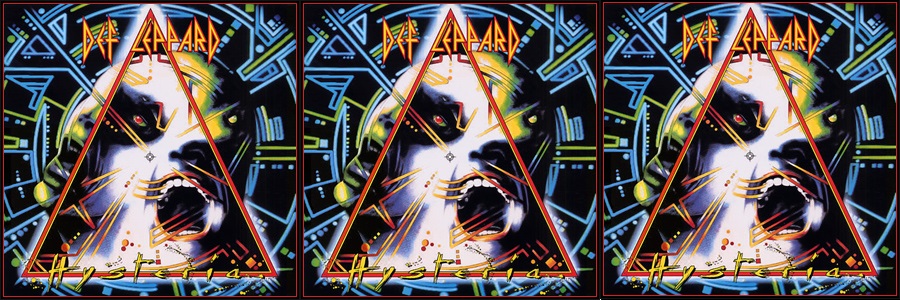The Def Leppard album Hysteria was released on Monday, August 3rd, 1987. My 12-year-old self was a big fan of this album, which featured musicians Joe Elliott of Sheffield, Yorkshire, England, Rick Savage of Sheffield, Yorkshire, England, Rick Allen of Sheffield, Yorkshire, England, Phil Collen of Hackney, London, Middlesex, England, and Steve Clark of Hillsborough, South Yorkshire, England.
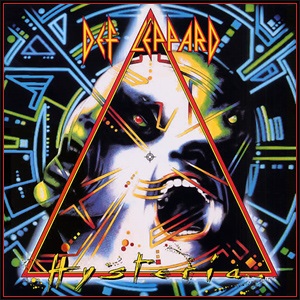
Women charted 80th in the United States. Per Songfacts as sourced here, the band knew that “women don’t like songs called “Women,” especially when they’re prurient tales of male desire set in biblical times. When they released this song, Def Leppard knew that it would gin up their core audience but would have little appeal to the female fans who had made them superstars.”
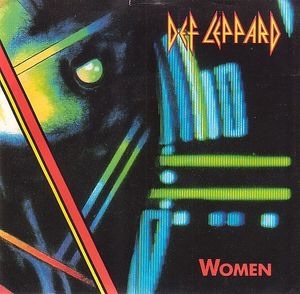
Rocket charted 12th in the United States and 15th in the United Kingdom. Playing on the notion of rocking the song while using the title rocket, the band lyrically references music by The Rolling Stones, Elton John, The Beatles, David Bowie, Paul McCartney, Chuck Berry and Queen.
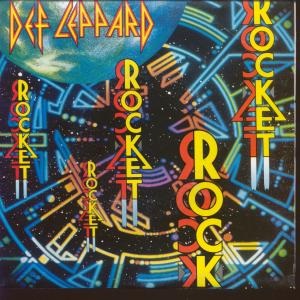
Animal charted sixth in the United States and 19th in the United Kingdom. The recording of the song “took three years to complete,” as referenced here. Besides the accident to drummer Rick Allen, the move to change producer from Jim Steinman to Robert John ‘Mutt’ Lange made a big difference with this song.

Love Bites introduces the notion that singer Joe Elliott wanted to emotionally invest in physical intimacy with a lady. That the song approaches this in a ballad format really helped the band resonate with ladies.

Pour Some Sugar on Me charted second in the United States and 18th in the United Kingdom. The song became an anthem of sorts for the band, with influences as indicated here including The Archies and T. Rex. Illusions to physical intimacy from this song, metaphorically, are quite clear.
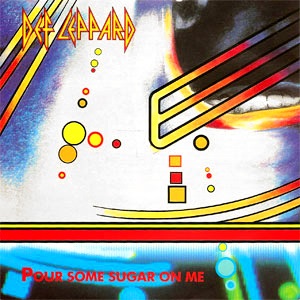
Armageddon It charted third in the United States and 20th in the United Kingdom. The song plays with words similarly to the song Rocket from earlier in the album, with the lyrics “Are you getting it?” being answered with “Armageddon it”. As referenced here, the large influence of the change of producers was felt with this song. “Lange took over for Jim Steinman, whose sessions were scrapped in 1985. With Lange, they created songs with a rock bombast and commercial appeal, and this one also played great in stadiums.”

Gods of War “is as close to a protest song as you’re going to hear from Def Leppard,” as noted here. The song didn’t receive much critical or commercial love, though the ask to avoid getting into wars is noted.
Don’t Shoot Shotgun returns more strongly to the world of the platform of love, or at least intimacy, with a protest of sorts into jumping too quickly into a physical expression of love.

Run Riot feels like an early in the setlist song intended for concerts in support of the Hysteria album. Lyrically, the song itself invites an investment in the glamorous perspective of rock-n-roll where hedonism has it costs but still feels worth it.
Hysteria returns to the ballad style with a song that charted tenth in the United States and 26th in the United Kingdom. As indicated here by guitarist Phil Collen, “The song really is about finding spiritual enlightenment[.] Not many people know that because it sounds like just getting hysterical, but it’s actually about that. It’s about finding this deeper thing, whether you believe it or not.”
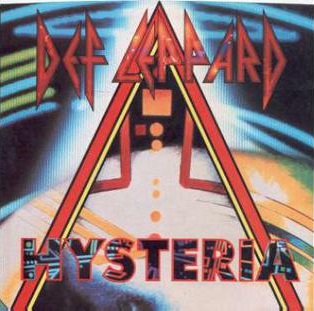
Excitable offers a clear invitation for returning energy to the band in a concert. The song itself can be interpreted when listening to the album itself in a more intimacy-based context, with the exploration of what you feel outpacing what you think.
The Hysteria album ends with a ballad adjacent song named Love and Affection. Lyrically, the album ends with the offer of a one-night stand of experiencing intimacy where the singer invites the company for the night to give in to the invitation. This song thematically fits with the album, though the offering of so many lyrics without a true bridge back to a chorus strikes me as a bit weak for the finish.
Matt – Wednesday, August 3, 2022
